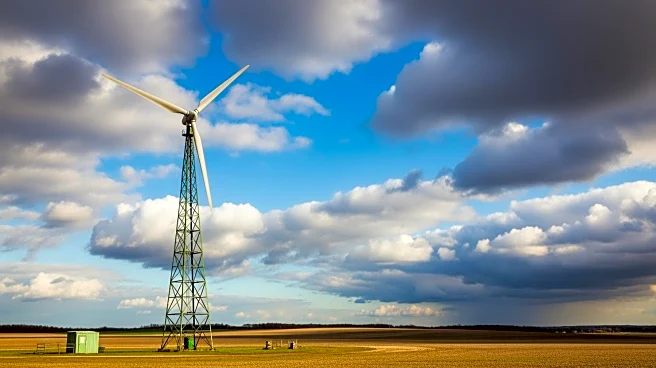What's Happening?
The Midlands region in the UK is actively pursuing a net-zero transition, aiming to achieve net-zero emissions by 2041. Despite its ambitious energy strategy and collaborations with the National Energy
Systems Operator, the region faces significant challenges, including financial barriers and policy uncertainty. A recent roundtable discussion highlighted the need for better access to finance, as sustainability loans and green finance mechanisms are not fully aligned with financial incentives. Participants emphasized the importance of local leadership and collaboration to overcome these obstacles and drive sustainable change.
Why It's Important?
The Midlands' efforts to transition to net-zero are crucial for setting a precedent in sustainable business practices. The region's challenges reflect broader issues faced by other areas attempting similar transitions, such as policy volatility and financial barriers. Successfully navigating these challenges could provide a model for other regions, potentially influencing national and international sustainability policies. The focus on local leadership and collaboration underscores the importance of tailored solutions that address specific regional needs, which could lead to more effective and equitable climate action.
What's Next?
The Midlands region is expected to continue its efforts in overcoming financial and regulatory barriers to achieve its net-zero goals. Future discussions and collaborations may focus on aligning financial incentives with sustainability objectives, enhancing local leadership, and securing long-term policy support. The region's progress could influence other areas in the UK and beyond, potentially leading to broader policy changes and increased investment in sustainable infrastructure.
Beyond the Headlines
The Midlands' transition to net-zero involves ethical considerations, such as ensuring a Just Transition that benefits all community members. The region's focus on green skills and education highlights the cultural shift towards sustainability, aiming to inspire future generations to engage in climate action. Long-term, the Midlands' success could lead to significant shifts in business practices and societal values, promoting sustainability as a core component of economic growth.










